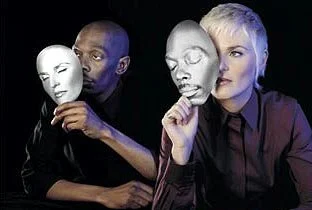House Music History 101: Faithless
Faithless
Faithless is a British electronic music group formed in 1995, consisting of members Maxi Jazz, Sister Bliss, and Rollo. The group is known for their blend of house, trip-hop, and trance, which has made a major impact on the electronic music scene.
Faithless developed a unique sound that combined elements of house, trance, and trip-hop. This eclectic mix allowed them to stand out in the electronic music landscape. Their music often features introspective lyrics, deep basslines, and intricate production, which set them apart from other artists in the genre.
The group is best known for several hit singles that have become anthems in the electronic music community. Tracks like "Insomnia" (1995), "God Is a DJ" (1998), and "We Come 1" (2001) have received widespread acclaim and remain staples in clubs and festivals worldwide. "Insomnia," in particular, is one of the most iconic tracks in electronic music history, known for its haunting lyrics and driving beat. It’s a track that will surely keep you up all night.
Faithless released several successful albums, including "Reverence" (1996), "Sunday 8PM" (1998), and "Outrospective" (2001). These albums showcased their ability to create cohesive, thematic bodies of work that resonated with a wide audience. Their music even explored themes like spirituality, politics, religion, and personal introspection, adding that extra layer of depth to their infectious tracks.
Faithless is renowned for their energetic and dynamic live performances. Their ability to blend live instrumentation with electronic elements created an immersive concert experience that attracted a diverse fanbase. Maxi Jazz's charismatic stage presence and Sister Bliss's musical versatility were key components of their live shows.
Faithless's innovative approach to electronic music has influenced many artists across various genres. Their willingness to experiment with different sounds and styles inspired other producers and musicians to push the boundaries of electronic music. They largely helped bridge the gap between underground dance music and mainstream success.
Beyond their musical contributions, Faithless's lyrics often addressed social and political issues, resonating with listeners on a deeper level. Tracks like "Mass Destruction'' (2004) tackled themes of war and conflict, showcasing their commitment to using music as a platform for meaningful messages.
Despite their formation in the mid-1990s, Faithless's music continues to be popular today. Their tracks are frequently played in clubs, on radio stations, and at festivals around the world. Their influence is evident in the work of contemporary electronic artists who draw inspiration from their pioneering sound.
Here is Michael Bibi playing the iconic track ‘Insomnia’ at the iconic Printworks venue in London, U.K. You can quite literally feel the energy just watching the video.
Faithless's impact on house and electronic music is profound, marked by their distinctive sound, memorable hits, and thought-provoking themes. Their contributions have left a lasting legacy in the electronic music scene, influencing both their contemporaries and future generations of musicians.

